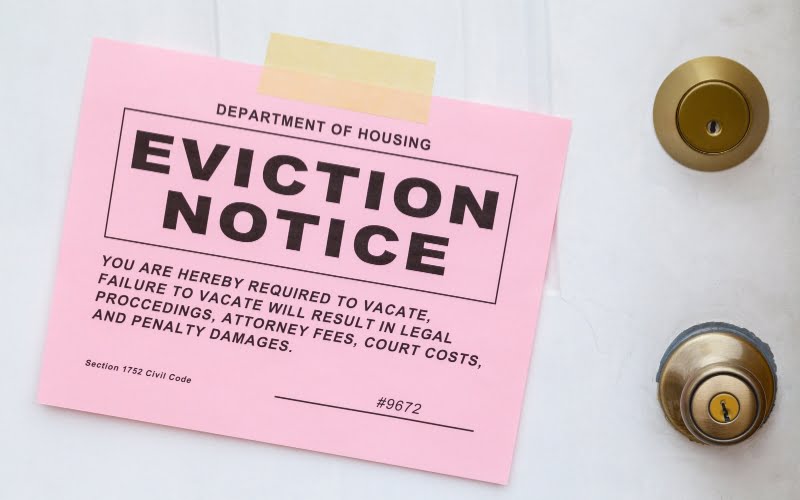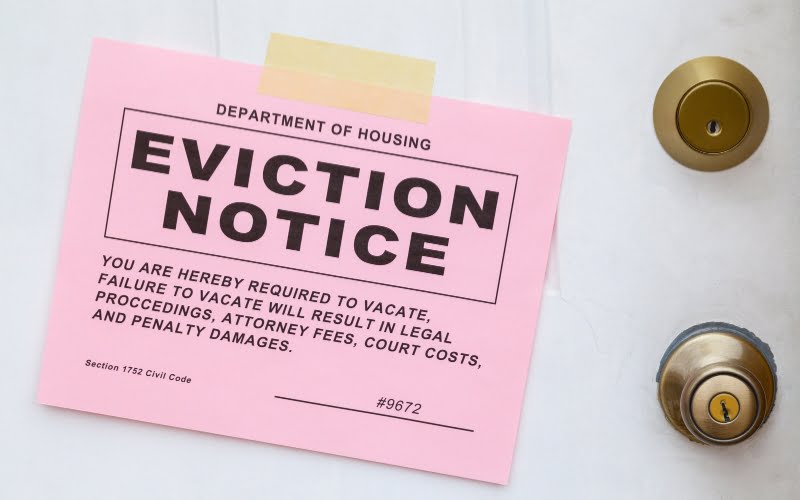Last Updated on March 18, 2024 by Kelvin Nielsen
All evictions in Alaska begin with a legal notice. An eviction notice terminates the lease agreement and informs the tenant whether or not they can cure the violation and within what period of time.
To successfully evict a tenant from your Alaska property, you must use the appropriate eviction notice. If you don’t, the eviction may fail, and you may have to restart the process all over again. And this will give the tenant more time to continue living on your property.
For instance, to evict a tenant after their lease has expired, you must use a 30-Day Eviction Notice instead.
So, what exactly is a 7 day eviction notice? Well, here is everything you need to know in regard to this important notice. The following are frequently asked questions when it comes to the Alaska 7 day eviction notice.
What is the Alaska 7 Day Eviction Notice?
The 7 Day Eviction Notice is a type of eviction notice that landlords in Alaska must use when evicting tenants for nonpayment of rent.
Unless the lease states otherwise, rent becomes due at the beginning of each rent cycle. It, therefore, becomes late a day immediately after it is due.
For instance, if rent is due on the 1st of every month, it automatically becomes late on the 2nd day if it’s unpaid. Alaska tenants have no right under state law to a legal grace period. There are also no exceptions for holidays or weekends.
If the tenant fails to vacate the property by the end of the notice period, you can move forward and file an eviction lawsuit against the tenant.
How do you evict a tenant using the Alaska 7 Day Eviction Notice?
The following is a step-by-step process that you must follow to continue with the eviction process.
- Once the 7 days are over, you can continue with the eviction by filing a lawsuit against the tenant in court. File a lawsuit in the court of the proper county. The court will subsequently issue you with a copy of the Summons and Complaint, which will need to be served on the tenant by a process server or sheriff.
- Wait for the tenant to answer. This will give the tenant an opportunity to fight or stop their eviction if they have a legal defense.
- Both parties will need to attend the eviction hearing. In Alaska, it normally takes 15 days after the filing of a complaint with the court for a hearing to be held.
- If the judgment is in your favor, the court will issue you with a Writ of Assistance. This will authorize the sheriff to remove the tenant by force (if need be).
How must you write an Alaska 7 Day Eviction Notice?
You must complete the eviction notice by including the following information.
- Names of all adult tenants.
- The rental property’s address.
- Rent amount and when it was due.
- Total amount the tenant must pay and where they should pay it.
- The date the tenant needs to have paid the balance due or moved out of the property.
- The date the notice is served.
- Signature of the landlord.
- The landlord’s address and phone number.
How must a landlord serve the Alaska 7 Day Eviction Notice?
You must serve the Alaska 7 Day Eviction Notice using any of the following methods.
- Hand the notice to the tenant in person.
- Hand the notice to a person of a suitable age. You must then mail another copy to the tenant via certified or registered mail.
- Post the notice in a conspicuous place, such as the entry door. You must then mail another copy via certified or registered mail.
Conclusion
The Alaska 7 Day Eviction Notice is a special type of notice that landlords must use when evicting tenants for nonpayment of rent. It gives a tenant 7 calendar days to move out or pay the balance due. If the tenant doesn’t do either things, you can choose to proceed with the eviction by filing a lawsuit in court.
It’s important to ensure that the notice contains all important information. Including, the reason for the eviction and the effective date of lease termination. If you fail to do so, the tenant may be able to use that as a legal defense to delay their eviction.
Disclosure: The content herein isn’t a substitute for advice from a professional attorney. It’s only meant to serve educational purposes. If you have a specific question, kindly seek expert attorney services.
Sources: https://www.law.alaska.gov/department/civil/consumer/3403010.html, https://law.justia.com/, https://courts.alaska.gov/shc/housing/startevictioncase.htm#:~:text=The%20court%20holds%20an%20eviction,the%20Tenant%20has%20to%20move.,

Hi, I’m Kelvin Nielsen, an experienced landlord and accomplished real estate lawyer. My focus is on answering your questions about renting in the hopes of making your life as a renter or a landlord a bit easier.







